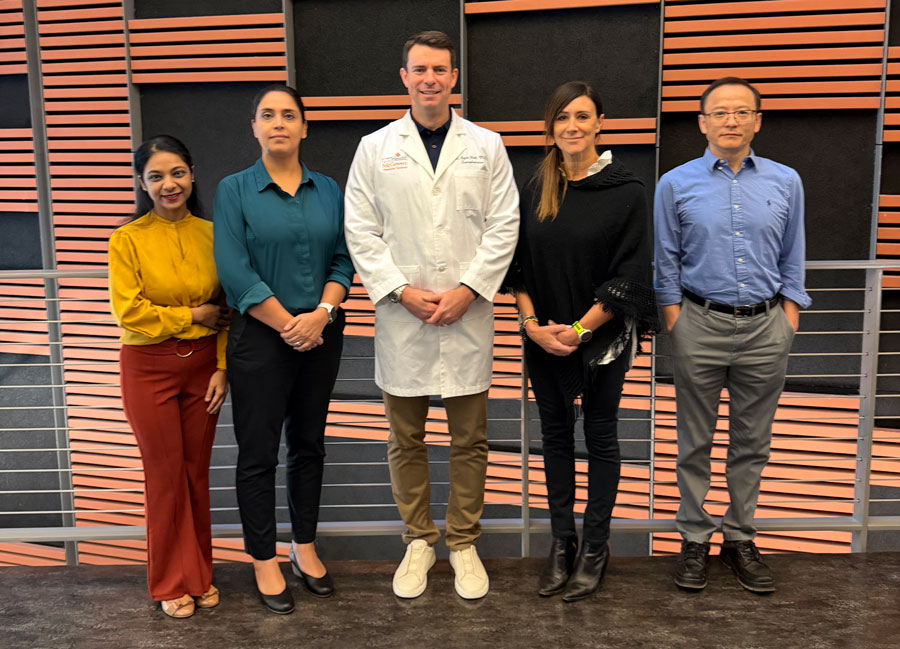Circadian research reveals promising combination therapy in preventing liver cancer

Recent research from the lab of Kristin Eckel-Mahan, PhD, associate professor in the Institute of Molecular Medicine’s Center for Metabolic and Degenerative Diseases, reveals how a standard therapy for hepatocellular carcinoma (HCC) combined with a natural molecule called nobiletin can improve the function of the circadian biological clock and help prevent liver cancer. The findings were published in Cell Reports.
The paper is authored by Baharan Fekry, PhD; Savera Aggarwal, PhD, APRN, AGNP-C; Andy Escalante, PhD; and Eckel-Mahan. The lab also received major contributions from Zheng (Jake) Chen, PhD; David (Ryan) Hall, MD; Sheng Pan, PhD; and Kai Sun, PhD.
Using preclinical models of liver cancer and liver disease specimens, the lab tested for the upregulation of acylcarnitine metabolism in humans suffering from hepatocellular carcinoma. The lab used liver tissue and patient-matched serum provided by Hall and the UTHealth Houston Biobank.
The team discovered that applying nobiletin, which amplifies circadian function, boosts the effectiveness of standard-of-care treatments in preclinical models of liver cancer. This suggests that targeting the body’s internal clock may hold promise as a therapeutic strategy alongside existing cancer treatments.
The researchers also identified specific proteins in liver cancer that were highly responsive to the combination therapy, providing new biological insight into how nobiletin is interacting with tyrosine kinase inhibition, one of the clinical standard-of-care approaches. Additionally, the study highlighted a key metabolic pathway involved in acylcarnitine metabolism that may serve as a distinctive signature of circadian-deficient liver cancer.
“Our study suggests that lower doses of a standard-of-care therapy might be more effective in treating liver cancer when co-administered with nobiletin, which has a low toxicity and alone improves liver health,” Eckel-Mahan said. “In addition, our data suggest that in patients perceived as high risk for advanced liver disease, metabolites and enzymes associated with abnormally high levels of acylcarnitine metabolism might be used to identify those with elevated risk for the type of liver cancer we found responsive to the combination therapy.”
Moving forward, the lab hopes to further identify biomarkers for patients who might benefit from combination therapy. It is the hope of the team and their collaborator Chen, professor in the Department of Biochemistry and Molecular Biology, to formulate an orally ingestible pill that could be used to test combination therapy for late-stage hepatocellular carcinoma patients.
Eckel-Mahan, Chen, Sun, and Pan — the Rochelle and Max Levit Chair in the Neurosciences — are faculty members at The University of Texas MD Anderson Cancer Center UTHealth Houston Graduate School of Biomedical Sciences.